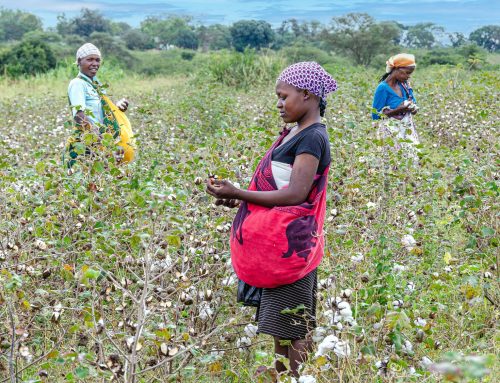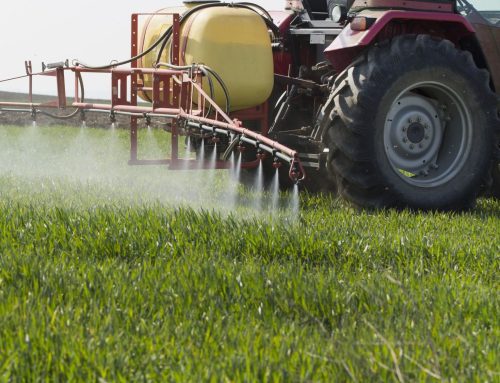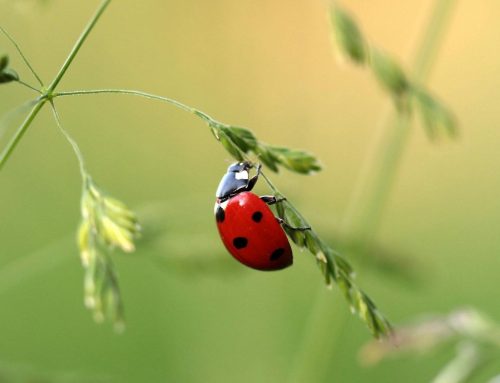The first of Atalo Belay’s (PAN Ethiopia) reflections on ten years of tackling hazardous pesticide use on smallholder cotton farms in Southern Ethiopia
The pesticide problem
Ethiopia’s Southern Rift Valley was a cotton production area where large volumes of pesticides were being used by both commercial and smallholder cotton farmers. Despite a lack of official documentation, it was known locally that there were many pesticide poisoning incidences among farmers, and farm households were also reporting that children were committing suicide by drinking these highly hazardous chemicals. Awareness of the adverse impacts of pesticides was so low that you would see farmers spraying pesticides barefoot and topless due to the heat and families were using empty pesticide containers to store food and drinking water. This misuse was largely due to the fact that farmers saw pesticides as ‘medicines that can cure’ rather than poisons that can cause acute and chronic diseases; and even kill.
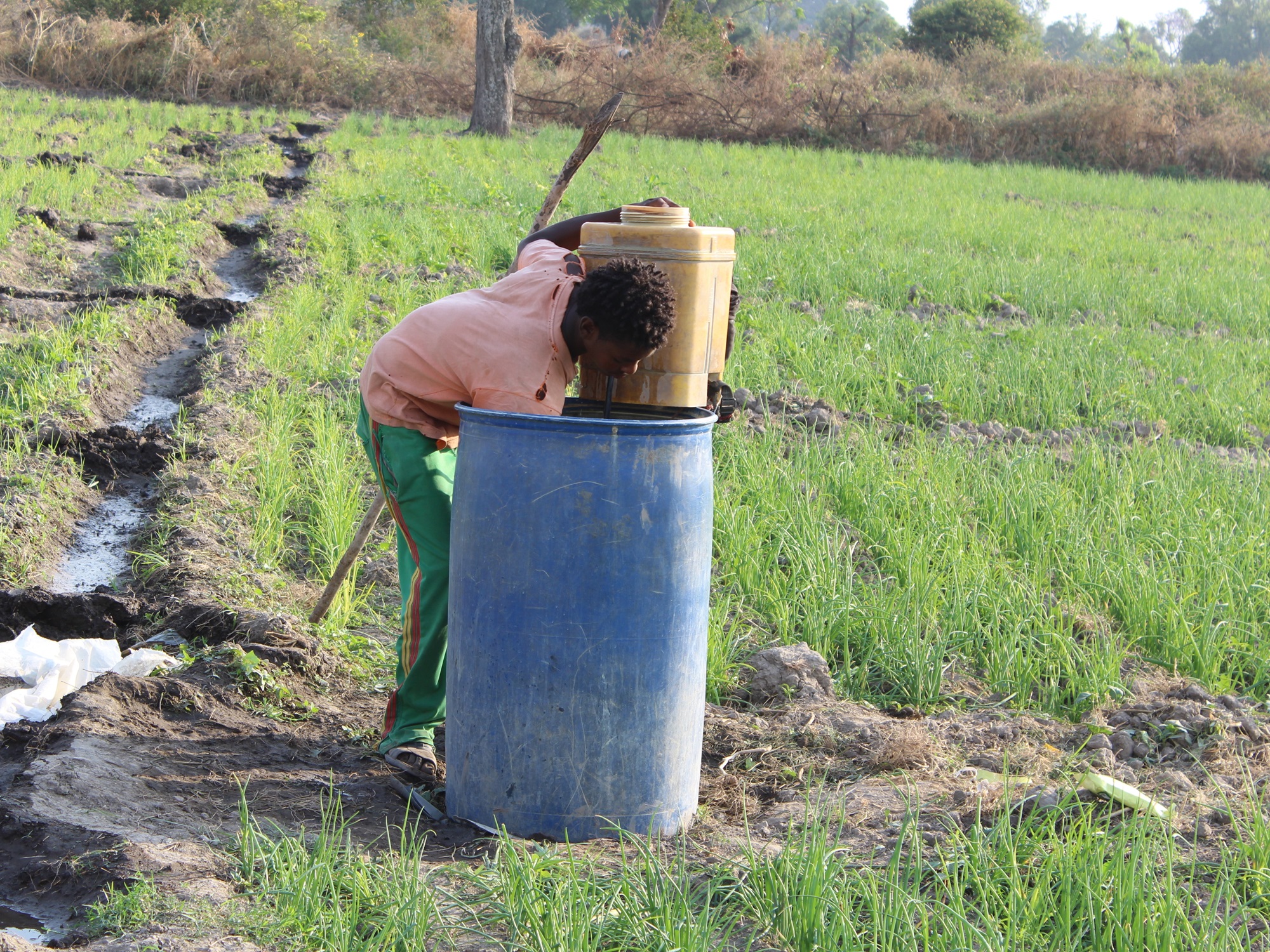
Farmworker handling pesticides without personal protective equipment (PPE). Credit PAN Ethiopia
Introducing the ‘food spray’
Due to these issues, PAN Ethiopia with support from PAN UK and TRAID, had decided to attempt training and converting cotton farmers in the region over to safer and more sustainable farming methods. PAN Ethiopia Director, Dr Tadesse Amera, briefed me on a new pest management technique called the ‘food spray’ method that had already been successfully trialled in Benin. In preparation for training, we had to sow a field of cotton which included the planting of a maize ‘trap crop’ which surrounded the cotton crop from all directions.
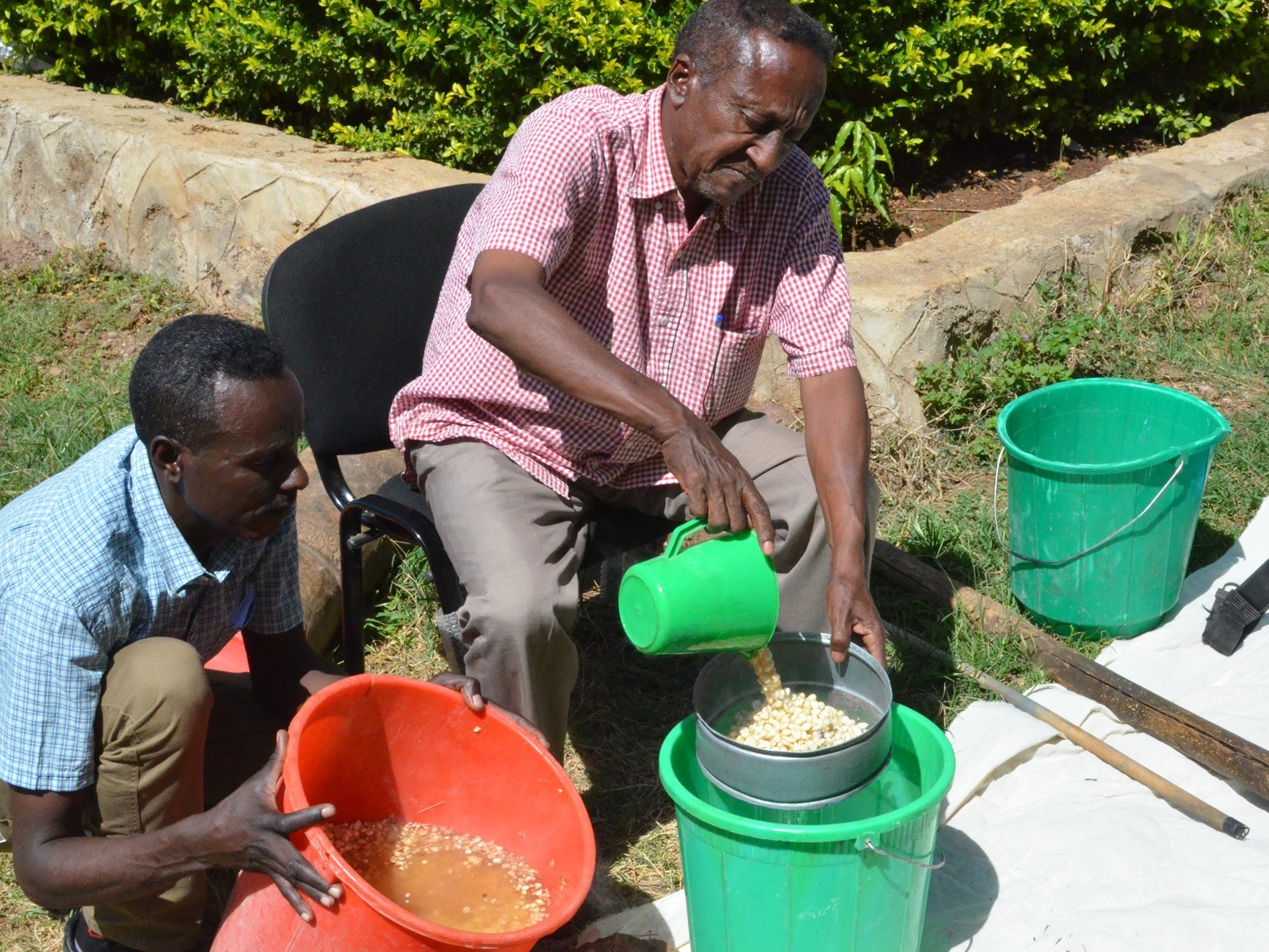
PAN Ethiopia staff, Shambel Boku and Bazezew Gebremariam, preparing the food spray for a demonstration. Credit PAN UK.
We also had to prepare the food spray from maize kernels, brewer’s yeast, neem seeds, sugar and soap, all of which we had readily available, except for the neem seed. Neem tree grows in many parts of Ethiopia but no one collects its seeds and only a few people know about its medicinal values. After many frantic phone calls, I tracked down some seeds in Dire Dawa – a city in eastern Ethiopia, but with the training just three days away and experts soon due to arrive from Benin, there was no time to lose. And so, my role in the start of this project begins with a 48-hour, 1,500 km cross-country race on a variety of different minibuses to get my hands on 50 kgs of neem seed.
A well thought through approach
The training was a real turning point for me as I began to learn the benefits of the food spray method and how to better monitor the cotton crop throughout the cotton season.
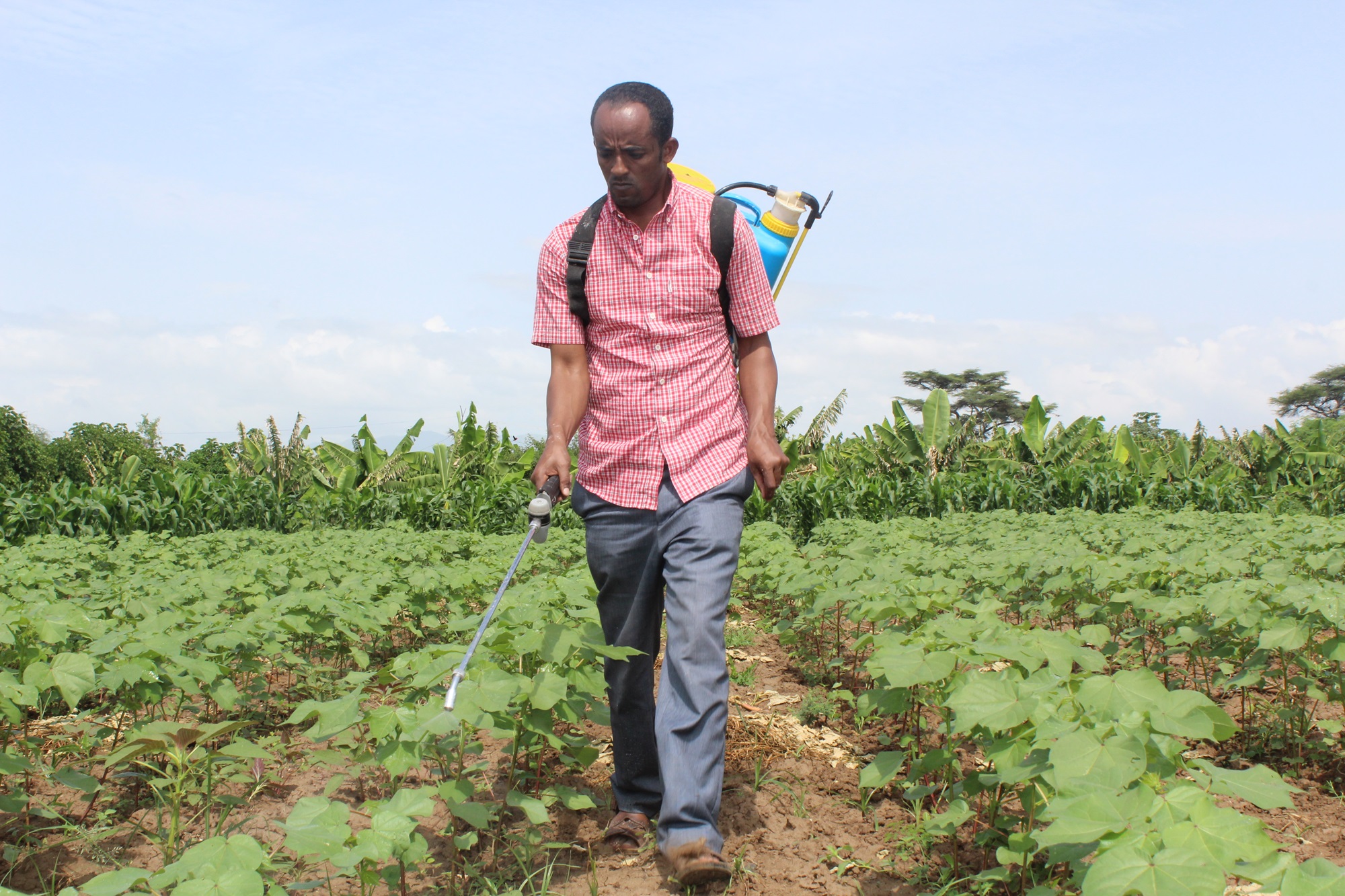
Zemenu Genet of PAN Ethiopia demonstrates the application of food spray on cotton crops in order to attract beneficial insects that control pest numbers. Note that no PPE is needed. Credit – PAN Ethiopia.
I really liked the fact that although the food spray method had already been tested and found to be effective in Benin, the project started by setting up trials to demonstrate to both our staff and other agricultural experts that it could work locally too. As the name suggests, the spray is a form of biocontrol that is applied to crop foliage as a food source to attract natural pest enemies into the field in order to manage pest populations. I am an entomologist and I had learned about the ways in which fermented products can attract predatory insects in college. I used it to rear insects in the laboratory and greenhouse but using fermented products in a real-life situation was new for me.
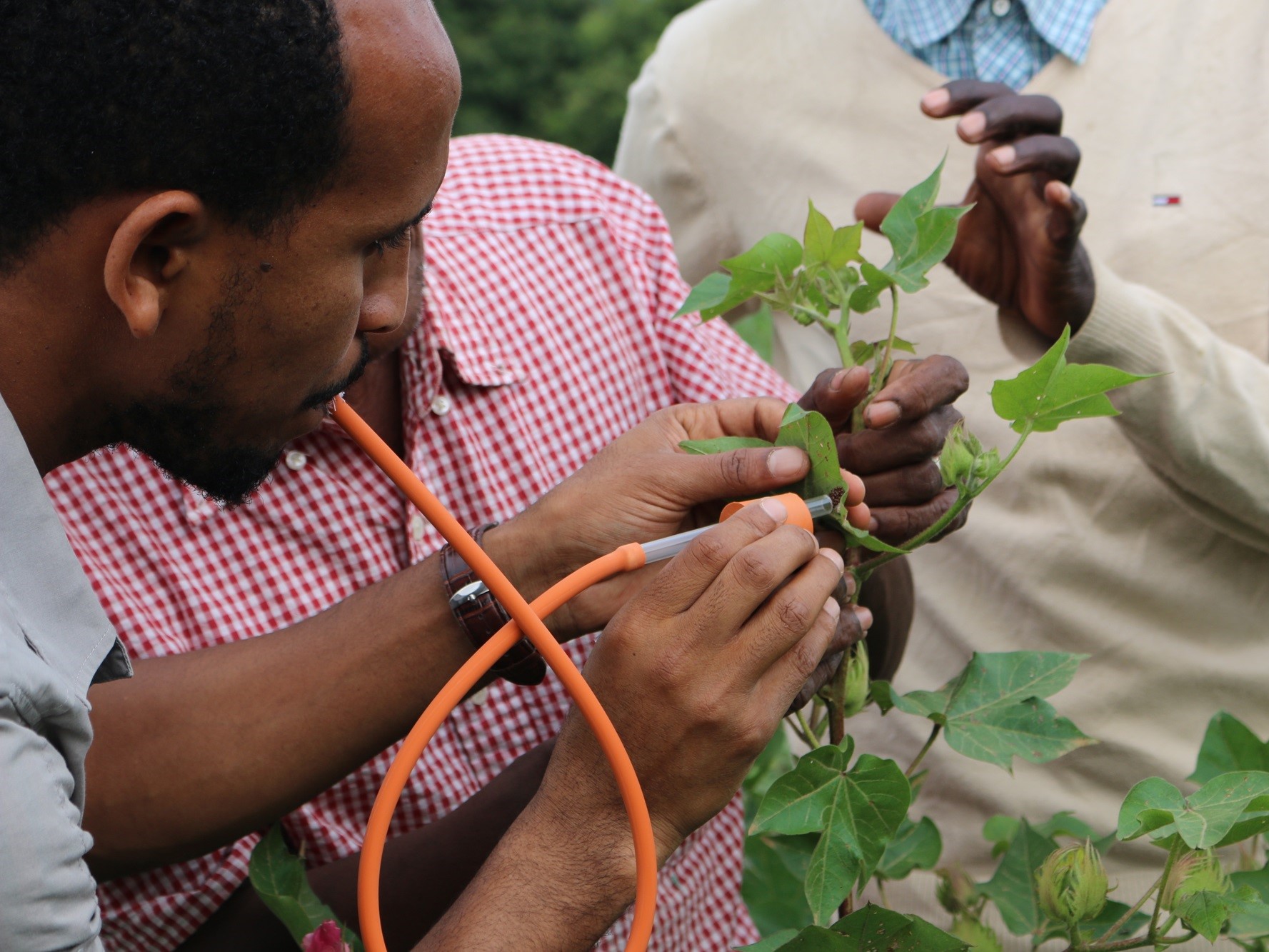
Atalo Belay, PAN Ethiopia, monitoring pest numbers in a cotton field. Credit PAN UK.
I became motivated to read books on insect behaviour, chemical ecology and the interaction of insects with the physical environment. I had so many questions like; why are only predatory insects attracted to the food spray? What kind of message does the food spray send to the predatory insects? Does the food spray affect pests? In what way? I began to better understand the complex interactions between organisms which underpins the study of ecology, and so my journey to become an agroecologist had begun.
Read the second part of Atalo’s reflections ‘The hard work pays off’ here.
Read the third part of Atalo’s reflections ‘Hope for the future’ here.
This project is funded by Traid, a UK registered charity working to tackle the environmental and social impacts of producing, consuming and using clothes.
Atalo Belay is an applied entomologist by training and is Program Co-ordinator at PAN Ethiopia. He helps run and contributes to the varied IPM projects implemented by PAN Ethiopia around the country. He also provides IPM training for farmers, agriculture extension officers, women and youth groups engaged in agriculture.
Read more about our work with cotton farmers in Ethiopia here.

